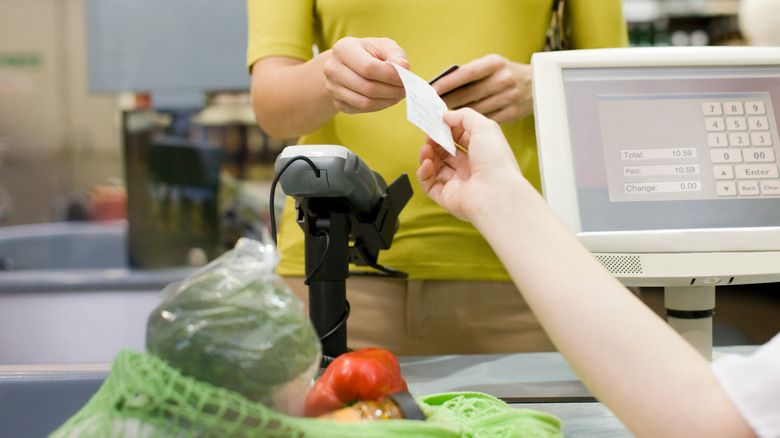Medicaid Funds Can Now Be Spent On Groceries In The US
The federal government has officially ruled that states will be allowed to let Medicaid funds be spent on certain food programs. As reported by The Wall Street Journal, the Biden administration is in the process of approving plans from several states which would allow Medicaid recipients who meet certain qualifications to purchase healthy foods or enroll in certain nutrition programs as part of a new "food as medicine" approach to healthcare. Although the decision has been made at the federal level to allow for these programs to move forward, the specifics of what type of food and educational initiatives recipients would be allowed to use Medicaid funding for is being left up to the states, an idea that has garnered bipartisan support.
Some of the state programs which have already been approved include assistance buying healthy foods and enrollment in cooking and nutritional planning classes for youth in foster care, recently incarcerated people, and people experiencing or at risk of homelessness in Oregon, and a similar program in Arkansas for people 19 to 24 at risk of long term poverty or veterans at risk of homelessness. Alternatively, Massachusetts will allow up to six months of meal delivery or medically tailored "food prescriptions" for Medicaid recipients in specific populations including children, pregnant women, and people with diet-sensitive medical conditions like diabetes.
Better nutrition, better health
This is not the first step the Biden administration has taken in emphasizing the importance of food. In September, the president held the first White House Conference on Hunger in over 50 years to discuss the growing issues of hunger and nutrition. The renewed focus on helping people access healthy food comes on the heels of record food inflation and a pandemic which left 15% of U.S. households unable to access sufficient food resources (per The Wall Street Journal).
The idea behind the "food as medicine" mentality is that if people are able to access high-quality food, overall health will improve and visits to doctors and hospitals will decline. The WSJ reports that a Tufts University study on the issue showed that providing medically tailored meals to Medicare and Medicaid recipients could save the programs $13.6 billion per year after the costs of food.
Opponents of the program see it as redundant, considering the government already provides funding for food for low-income families through the SNAP and WIC programs, however, the new initiative is also coming at a time when those programs are anticipating cuts. According to CBS News, emergency SNAP expansions implemented in 2020 are set to expire in 38 states this March, creating what some experts have called a "hunger cliff" for 30 million Americans on the program as food prices remain inflated. Allowing low-income families to use Medicaid funds to help supplement the loss of SNAP benefits may help curb this anticipated shortfall.

